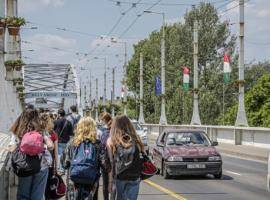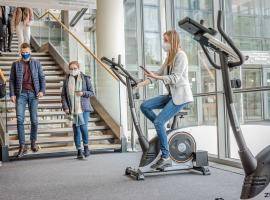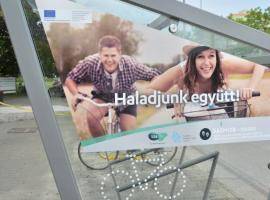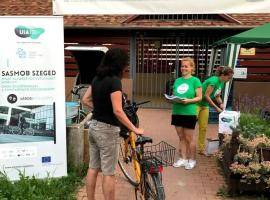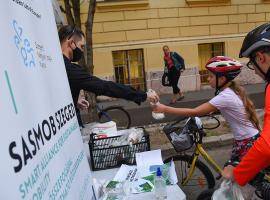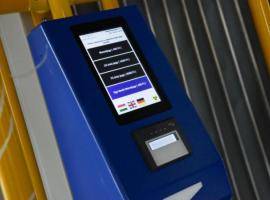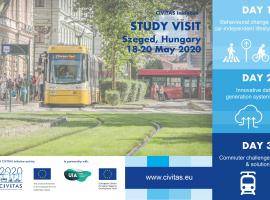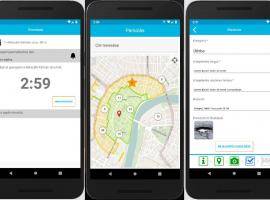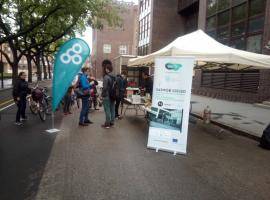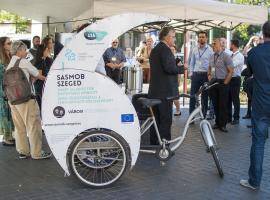Signatures for Szeged: The Mobility Pledge to Support the City’s Sustainable Transport Signed

During the event, Mr. Sándor Nagy, Vice Mayor of Szeged for City Development, thanked the representatives of eight major employers for signing the Mobility Pledge, which is about convincing and motivating employees to use environmentally conscious means of transport, primarily cycling and community transport.
After thanking all related partners, and pointing out how helpful their participation in the project has been for the inhabitants of Szeged, Mr. Nagy said that “today’s signature was a tiny yet important step in this entire process, wishing for an even more fruitful and close cooperation among all stakeholders in the years to come, even after the project’s end.
Prior to the ceremonial event, an internal survey about employees’ mobility habits and needs, including passenger counting and household surveying, was launched. About two thousand households and four thousand respondents participated in the survey. For the completion of the survey, travel chains were prepared, i.e. tracking of a person’s routine and trips made throughout the day. These chains were used to compile a survey about travel and transport usage patterns. The survey also reflected on the degree of people’s satisfaction with public transportation vehicles and which trends participants saw in the conditions of moving as pedestrians.
This, however, was not the only way to measure the level of satisfaction with the current state of transport. In the framework of the SASMob Project, a novel research method was also applied in the preparation year. An article was published about this workplace survey – the main point was to understand the travel-to-work habits of the employees of organisations of different sizes and what solution opportunities exist to remedy transport related problems of a given organisation in the near future. The research results pointed out that people have very specific needs.
"You can never have enough bike shelters – but, as an example, we also launched the planning of a new public transport stop near the HQ of one of the companies, to make even more employees use means of community transport" said Mr. Nagy. Another part of the project is the design of a mobile application, scheduled to be available by the end of the planning phase, which will make travelling easier for the employees of particular companies. The app will help people find others for car sharing to ease the pressure of the morning peak.
Part of the model is for the city and the stakeholders, like Szeged University or evosoft, to reach an agreement about cooperation in these mobility related matters. The city of Szeged is making all endeavours to meet the expectations stakeholders have towards it. A good example to such efforts is a request, and its management by the municipal government, made by one of the largest project participants, the Clinic Centre, to introduce slight modifications in the public transport timetable, with an eye to making commuting easier for its employees. The municipal government has started to study the request, identify possibilities based on the passenger counting data and see if the request would not cause a significant increase in prices in organising new public transport timetables.
Mr. Nagy pointed that to mention a concrete example also to this: even making a service is less frequent in the mornings but more frequent in the afternoons, at the time of shift changes, is a timetable change. The easiest way to understand actual needs for such modifications is collecting the sort of feedback mentioned. This is what the first project year has been about, and one the roles of this signature ceremony is to formalise such changes.

